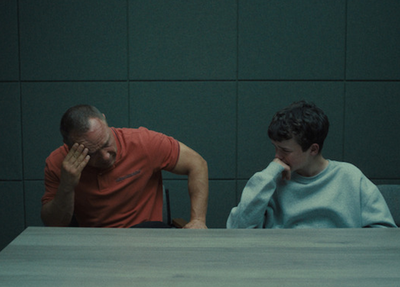Protecting tamariki and their digital footprint
Caitlin on Sept. 8, 2021
If your naked image was featured on the cover of a music album that went huge, and you hadn’t consented to that, that might be something you’d get pretty angry about. You might feel ashamed or victimised. Is it different if you are a child?
The baby on the album cover Nevermind by Nirvana is now a grown man suing the band, saying he was sexually exploited from the use of his image from 1991 onwards – and we are really interested in this.
As part of our role to classify content we see a lot of child sexual abuse material and exploitative images in general – and it really does suck. In a recent blog we said that sometimes amongst these images we see pictures that have been taken from social media of children naked on the beach and bath photos. Images that were taken with good intention but due to being posted on a public forum are taken, shared and used by those with a sexual interest in children.
We want to encourage whānau to think about what they were posting and where things could end up.
What we also need to consider is our children’s digital footprint and their consent. How will a child feel about their bodies being posted in a public space? Consider how they could feel now and in the future.
When we post about our tamariki online we are creating their digital footprint before they have a say. Spencer Elden’s lawsuit against Nirvana is an example, although an extreme one, of what could happen as our tamariki get older and discover how much of their life is online. Back in 1991 Elden’s parents wouldn’t have understood the risks, what the internet would even be like in the future and the rapid development of digital technology.
But we can see the risks and are aware of how easily things can become viral and be used in ways we did not originally intend. Social media can be just as public as a billboard in a busy city if you aren’t on top of your privacy settings or aware of the platform’s privacy policies.
We aren’t saying that your children are going to grow up and sue you. And we also aren’t saying that you shouldn’t celebrate them and share special moments with friends and whānau. What we are saying is there may be a time where a child looks back and feels uncomfortable about the content that already exists online of them.
Consent is something that is taught in schools across the country but online it seems we are forgetting these simple and yet super important messages – especially the consent and privacy of tamariki. I am sure a lot of the things we post of them we wouldn’t have posted of ourselves.
Let’s play with some scenarios.
Imagine if you were going for a job interview and when your potential future employer conducted a quick Google or Facebook search they found a picture of you colouring in your bedroom walls. Embarrassing!
What if you had a high profile role and the media found a picture of you at wacky head day. Stress levels!
And if someone found your childhood address, pet name and favourite teddy bear, how easily could you be hacked? Dangerous.
Some of these are more sinister than others but none of them would make anyone feel good. It gets worse when images like naked scenes in the bath, and beach photos, are posted and are used by those with a sexual interest in children. Exploitative.
So what can we all do?
Digital footprint
Consider limiting the amount you post of your tamariki in public online spaces until you are able to talk to them about it. When you do post images take the focus away from their faces and show what they are doing or what they can see.
No naked photos
Don’t post naked pictures of tamariki. Save those ones for your photo albums. We get that your intentions are good but the internet can be a dark place. Protect them.
Update your privacy settings. Make sure your social media is private and keep your friend list updated.
Consent
Think about how you would feel if a similar image was posted of you. Would I have wanted my parents to post these images of me? Would I like a naked image of me on the internet now?
Start asking tamariki if you can take a picture of them and explain where the photo may go. Example: This photo is going on our family chat to your grandparents, aunt and cousins, is that okay? By asking you are giving them insight into who will see it and encouraging them to think about how that makes them feel. If other adults are taking photos of them they will have the vocabulary to tell them they don’t want their picture taken if they feel uncomfortable – or to get someone they trust to tell the adult if they can’t themselves. It also teaches them to be mindful when they are putting their pictures on their own social media in the future.
As the ever-evolving internet keeps developing we need to be extra cautious. A lot of long time users of social platforms are deleting years’ worth of content of their profiles and asking for their information back due to over-sharing. Privacy concerns are growing and it is good to be thinking about the privacy of your tamariki at the same time as your own.
For more tips and advice check out the full Keeping Treasured Memories Safe blog.
Subscribe to our blog
Stay up to date with the Classification Office blog.


